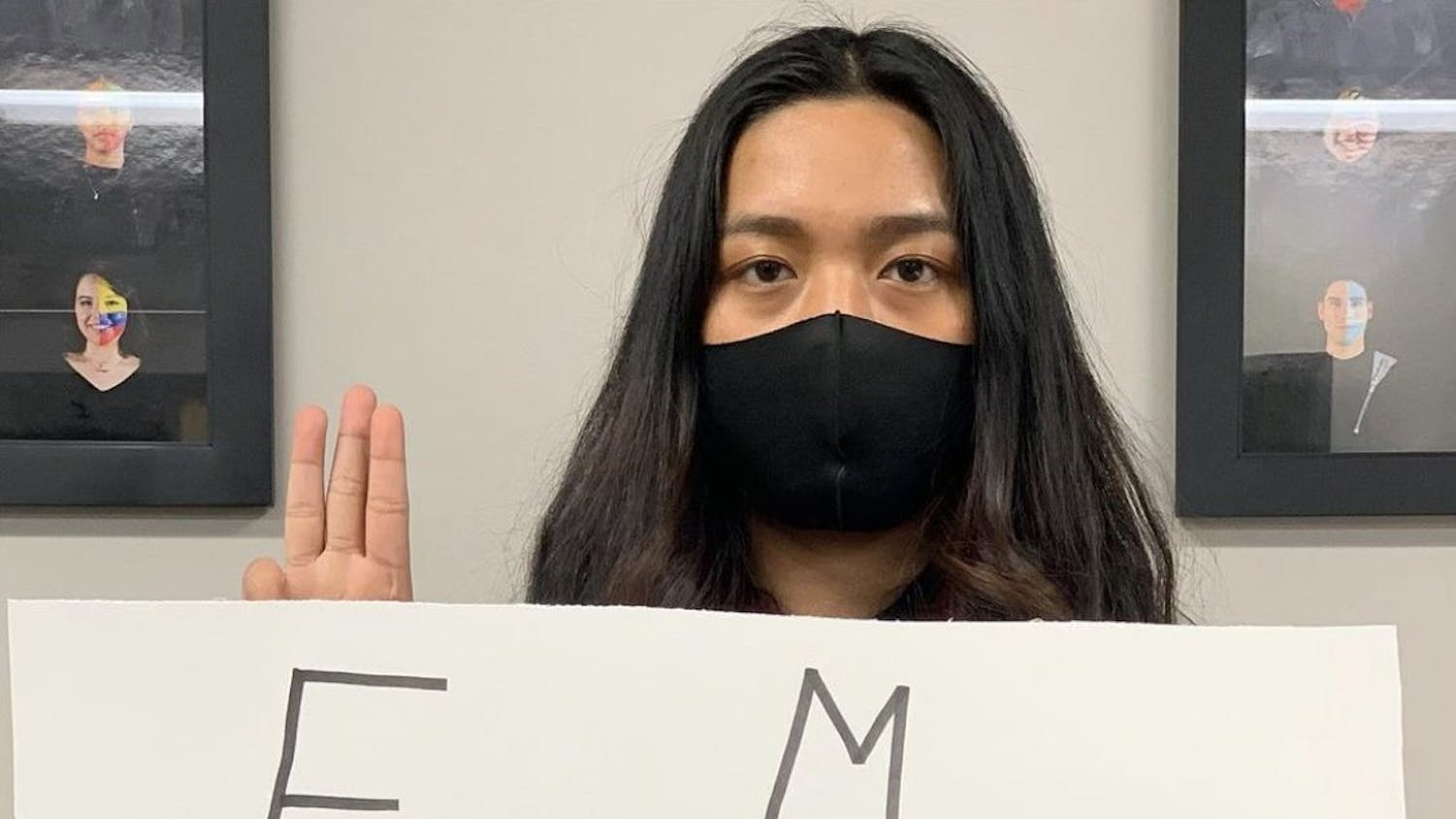By Claire Hadley and Tyler Smith
South African Olympian Oscar Pistorius faces charges of murder after shooting his girlfriend Reeva Steenkamp on the morning of Feb. 14.
Pistorius, nicknamed the "Blade Runner" for his prosthetic legs, has been detained and is awaiting a determination on whether he will be released on bail. When case hearings began on Feb. 19, the world watched as the man who earned a name as a national hero faced a possible sentence of life in prison for premeditated murder, according to the Los Angeles Times.
Steenkamp, a 30-year-old law school graduate and reality TV actress, had begun dating Pistorius in November, according to CNN. Both had been reported as saying how much they were looking forward to Valentine's Day. Anthony Pistorius, the athlete's uncle, stated that Oscar Pistorius and Steenkamp were happy in their relationship and were making plans for the future, according to a statement released by Oscar Pistorius' agent on Saturday.
The main issue is whether Pistorius planned to kill his girlfriend beforehand, in an act of premeditated murder, or if he was acting in self-defense in the interests of himself as well as Steenkamp and inadvertently killed her.
The first day of court deliberations made it seem there was no chance Pistorius would be let out on bail. Judge Nair, presiding over the case, decided that, for the purpose of the bail hearing, the charge would remain premeditated murder. According to South African law, a premeditated murder charge "requires an accused person to show exceptional circumstances to justify bail," which, once cited, made Pistorius' chances of receiving bail considerably slimmer.
"If I arm myself, walk a distance, and murder a person, that is premeditated. The (bathroom) door is closed," the prosecutor said, appearing to establish a strong case for premeditated murder. "There is no doubt. I walk seven meters and I kill. The motive is 'I want to kill.'" The prosecution claimed that it did not matter whether it was Steenkamp or an intruder-as Pistorius claims he believed it was-the action was still premeditated murder.
However, a turn of events occurred during the second day of bail hearings, as the defense heavily disputed the testimony of officer Hilton Botha, who was one of the first to arrive at the scene.
During the second day of proceedings, Botha talked about several pieces of evidence. He referenced finding two boxes of testosterone in Pistorius' home, which the defendant disputed.
But Botha's claims of the evidence were not accurate. The item was actually an herbal supplement that was "not steroids and not banned," leading Botha to admit that he had not read the label in its entirety and therefore could not be sure of the contents of the boxes.
"He had found nothing at the scene inconsistent with Pistorius' account of mistaking Steenkamp for the burglar. ... (She) had no defensive wounds nor were there any signs of a struggle or an assault," Botha also revealed, under cross-examination. This confession bolstered the defense's case of self-defense. In light of the events of Wednesday, the case was continued until Thursday morning, and the sports community and South Africa are waiting for further news.
A sudden twist in the case arrived Thursday, with no decision regarding Pistorius' murder charges or request for bail, but with the revelation that Botha is facing charges for seven accounts of attempted murder. The results of this information have yet to be seen, but for now, Pistorius' case will continue today.
One topic that has to be considered in Pistorius' trial is the rules of society that post-apartheid South African crime has created. As crime rate sky-rocketed, with incidents such as car-jacking and business robberies, an unwritten rule developed between the criminals and the public. The rule, known to all South Africans, is understood that criminals can break into homes and unfortunately, do whatever they want, but if they come near or into the bedroom, the general public will be armed and will shoot them in self defence.
The tragic case of Steenkamp's death and the trial of South Africa's hero will not reach the courtroom as a full trial for several months.




